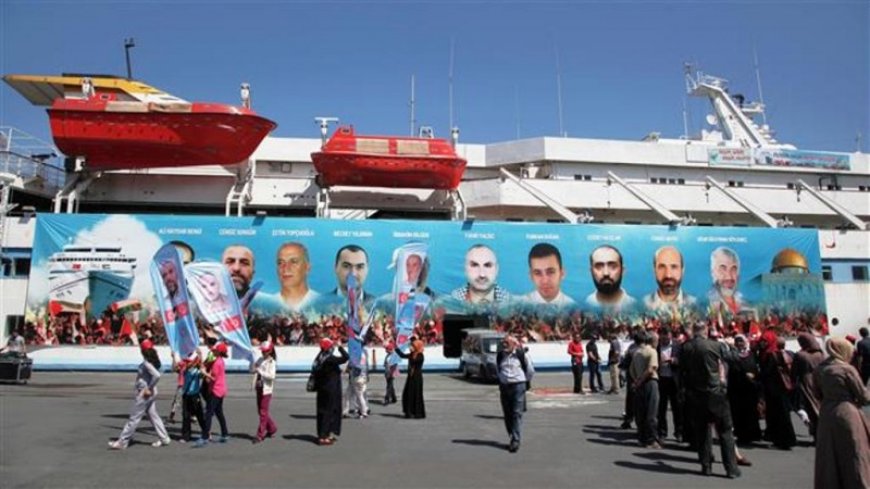Freedom Flotilla, 13 years after Israel's criminal assault on activist ship to Gaza
Freedom Flotilla, 13 years after Israel's criminal assault on activist ship to Gaza

Wednesday marked the 13th anniversary of the massacre perpetrated by Israeli occupation naval forces against the "Freedom Flotilla" as it headed to Gaza to break the siege in 2010. The Freedom Flotilla included several ships, including the Mavi Marmara Turkish, carrying more than 500 activists, mostly Turkish, and three other vessels belonging to the European Campaign to End the Siege on Gaza (ECESG).
Among the people who participated in the 1st Flotilla were Raed Salah, the chief of the Palestinian Islamic movement in the 1948 territories, Haneen Zoabi, a member of the Israeli parliament at the time, and parliamentarians from Germany, Ireland, Egypt and Yemen, artists and writers from Sweden and media professionals from several countries. The flotilla had departed from the ports of Turkey and southern European countries, heading first to Limassol, south of Cyprus, and then sailing towards Gaza.
However, the Mavi Marmara, one of the main ships of the flotilla, was attacked in international waters on May 31, 2010 by Israeli naval commandos who used lethal ammunition and tear gas, preventing it from reaching the Gaza Strip. The occupation forces had started contacting the ship's crew at 22:30 on May 30, when it was in international waters. The crew had told them that they were heading for Gaza and that they were in international waters, and no one had the right to stop them. Contact was later broken off at about 2 a.m. on May 31.
The attack began at 4:30 a.m. with a barrage of lethal munitions, causing casualties and injuries. According to the Medical Examination Institute report, the Israeli attack on the ship Mavi Marmara caused the death of ten people and the wounding of 56, mostly Turks. The attack aroused wide international criticism and leaders from all over the world asked the UN to conduct an investigation. The Israeli prime minister canceled his trip to the United States, during which he was scheduled to meet with then-President Barack Obama, and returned to the occupied territories from Canada. Israel rejected calls from the UN and governments around the world to an international investigation into the attack on the flotilla. Thirteen years on, the Gaza Strip continues to suffer from a severe siege, compounded by the destruction caused by numerous Israeli air strikes, and by the impediment to clean up the debris and reconstruction of buildings due to entry restrictions on basic supplies.













































